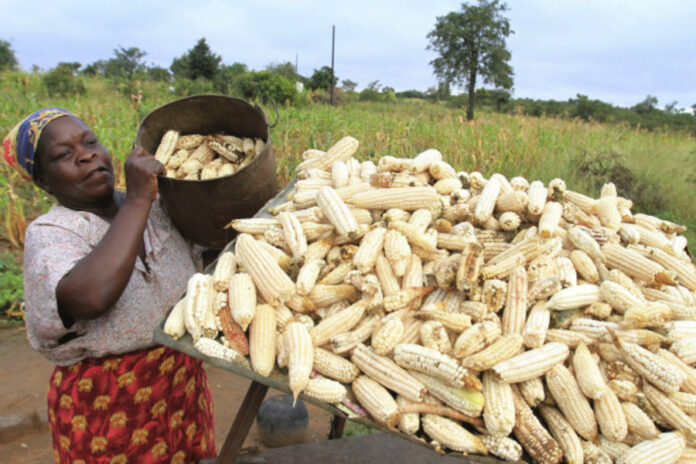Davison Kaiyo
HARARE – Seventeen African heads of state signed on to the commitment to boost agricultural production by doubling current productivity levels through the scaling up of agro-technologies. This will include investing in access to markets, and promoting agricultural research and development.
This came out during the recently held two-day high-level virtual dialogue called Feeding Africa: leadership to scale up successful innovations. The event was hosted by the African Development Bank and the UN’s International Fund for Agricultural Development (IFAD) hosted the event in partnership with the Forum for Agricultural Research in Africa (FARA) and the CGIAR System Organization.
A coalition of multilateral development banks and development partners has pledged over $17 billion in financing to address rising hunger on the African continent, and to improve food security.
Of the overall amount pledged, more than $10 billion came from The African Development Bank, which said it would invest $1.57 billion on scaling up 10 selected priority commodities over the next five years. This will help countries achieve self-sufficiency. Another $8.83 billion will go towards building strong value chains for these commodities over the next five years. This will include programs to create opportunities for young people – particularly women.
African Development Bank President Dr. Akinwumi A. Adesina said, “let us now create today, a stronger partnership: a partnership for greater scale; a partnership to take technologies and innovations to hundreds of millions of farmers.”
The International Fund for Agricultural Development said it aimed to provide an additional $1.5 billion to support national efforts to transform food and agricultural systems in Africa over the next three years. IFAD will also invest more in creating the pre-conditions for increased agricultural productivity. The organization is helping to develop a growing pipeline of investments to restore land, create jobs and build resilience to climate change in the Sahel region. This will contribute to the Green Great Wall objectives, and will create 10 million jobs in the region by 2030.
The meeting was attended by seventeen Heads of State, as well as by the president of the African Development Bank (ADB), Dr Akinwumi A Adesina, president of the International Fund for Agriculture Development (IFAD), Dr Gilbeft F Houngbo, executive chairman of the Tony Blair Institute for Global Change, Right Hon Tony Blair and chief executive officer of the Dangote Group, Alhaji Aliko Dangote.
Speaking during the same event the President of Zimbabwe Emmerson Mnangagwa said, African countries must share experiences on technology and innovations to transform agriculture so as to ensure food security.
“It is imperative that we ensure the existence of a well-functioning agriculture knowledge, technology and innovation ecosystem, anchored on requisite agronomic and animal husbandry practices.
“To this end, my Government has identified an array of key programmes and projects for the transformation of agriculture. These include the climate-proofing Pfumvudza/lntwasa concept; design, construction, rehabilitation and expansion of irrigation infrastructure; adoption of efficient water use technologies; promotion of the highly nutritious traditional grains; agriculture mechanisation; as well as soil conditioning and fertility management, among others,” said President Mnangagwa.
On the issue of funding President Mnangagwa said, to mitigate against the challenges of financing the country has since launched the Agricultural Finance Corporation (AFC) which houses the Land and Development Bank, the leasing company, the insurance as well as commercial bank. with the Land Bank being mandated with financing the agricultural sector from small scale to large commercial farmers.
“To mitigate the challenges associated with agriculture financing, the Agricultural Finance Corporation has been established. Models of strengthening existing contract farming arrangements are constantly reviewed to increase overall agriculture productivity, profitability, and fairness, over and above the access to finance aspect.”
Sub-Saharan Africa has a quarter of the world’s arable land but only produces 10% of its agricultural output. The low productivity of staple crops makes African agriculture uncompetitive. As a result, the continent imports one-third of the calories that it consumes. This makes food systems more vulnerable and dependent on external food supply chains.













